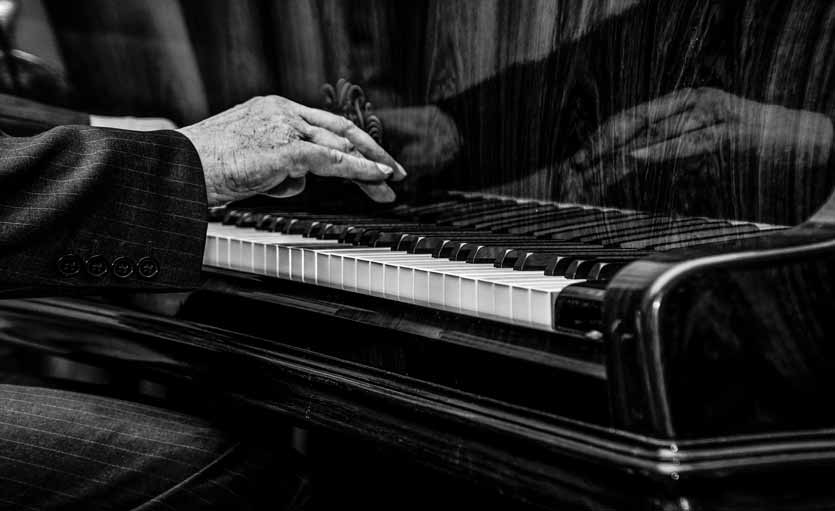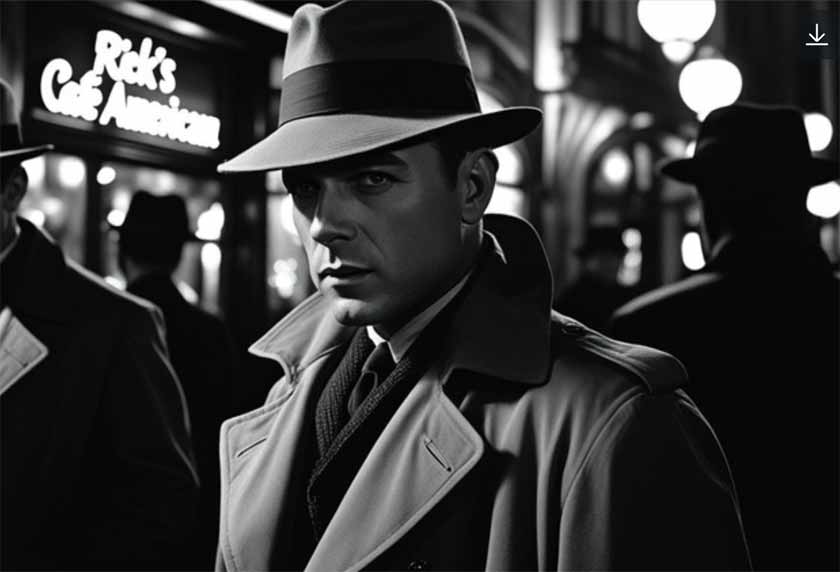Part Two of “Play It Again, Sam? The Real Story Behind Casablanca’s Most Iconic Song”
Curious about the famous line? Read the companion post:
“Play It Again, Sam?” The Real Story Behind Casablanca’s Most Iconic Quote.
When it comes to unforgettable piano moments in film, Casablanca sits at the very top. And at the centre of its emotional gravity? A piano, a bittersweet melody, and a friendship that helps a broken man remember who he is.
Let’s break down why As Time Goes By became the heartbeat of Casablanca—and what we piano lovers can learn from it.
1. Paris, Passion, and Piano Memories
As Time Goes By isn’t just a song in Casablanca—it’s a character. It symbolises the past romance between Rick (Humphrey Bogart) and Ilsa (Ingrid Bergman), evoking all the longing and loss of their pre-war affair in Paris. When Ilsa walks into Rick’s Café Americain and hears that tune again, we see—no, we feel—that neither the song nor their love has faded.
For piano learners, this is music doing what it does best: holding memory, emotion, and story in just a few chords. That’s the kind of magic Pianoforall aims to bring to modern learners—making piano playing a deeply personal experience, not just a mechanical one.
2. Sam – The Soul Behind the Keys
Then there’s Sam, the piano player and singer, played by Arthur “Dooley” Wilson. Sam isn’t just comic relief or musical background; he’s Rick’s moral compass and most loyal friend. In many ways, it’s through Sam—and that song—that Rick begins to find his way back to himself.
Interestingly, producer Hal B. Wallis initially considered casting jazz legend Ella Fitzgerald as Sam, flipping the gender and changing the dynamic. But in the end, it was clear: Rick needed a brotherly equal, not a flirtation. Wilson’s portrayal brought warmth, dignity, and heart to the role—and to the piano.
And here’s the twist: Dooley Wilson couldn’t actually play piano. That’s right. While he performed As Time Goes By on-screen with convincing hand motions, the actual piano music was played off-camera by a real pianist. The piano on set even had only 58 keys instead of the full 88.
So if you’re ever doubting your hand coordination while practicing a piece—remember, even Sam had help behind the scenes. It’s the feeling you put into the music that counts.

3. The Soundtrack That Echoes the Heart
Composer Max Steiner didn’t even want As Time Goes By in the film at first. But once it stayed, Steiner ran with it—crafting a score that wove the melody into every emotional twist and turn. In many ways, the tune becomes the film’s emotional barometer, subtly evolving alongside the characters.
If you’re learning piano today, this is a masterclass in how a simple melody can anchor a story, a film—or even your own musical journey. One song, played with feeling, can say more than a hundred notes played with precision.
A Fight For Love & Glory
While neither Elvis nor The Beatles recorded a cover version of As Time Goes By, a very large part of the popular music firmament has, at one time or another, had a go at placing their particular stamp on the song, since it gained the status of becoming a standard in the wake of the central place it played in Casablanca.
Consequently, assorted recordings of As Time Goes By abound.
For example, there are versions by the cream of female vocalists from blues and jazz backgrounds, as well as those plying their trade in many other popular music genres.
Such examples include the rendition recorded by the peerless Billie Holiday, who was amongst the first wave of artists to cover the song.
An eclectic array of other women singers followed suit, such as Petula Clark (1957), Alma Cogan (1958), Peggy Lee (1961), Barbra Streisand (1964), Julie London (1965), Shirley Bassey (1978), Barbara Dickson (1984), Carly Simon (1987), Jane Birkin (1992), Natalie Cole (1993), and, in a striking ‘what if’ moment, given she had once been considered for a gender-flipped Sam, Ella Fitzgerald (1999).
Not to be outdone, jazz greats also joined the fray: Dexter Gordon (1980), Chet Baker (1990), Erroll Garner (1964), Bill Evans (1981), Jessica Williams (2007), and George Cables (1980) all offered instrumental interpretations.
As Time Goes By has also proven irresistible to crooners. Perry Como kicked things off in 1955, followed by Sinatra and Andy Williams in 1962, Pat Boone (1965), Tony Bennett (1975), and finally Bing Crosby in 1976.
The list goes on—choirs, actors, novelty acts, orchestras, even country-western reworkings. Yet no one returned to the well quite like Vera Lynn, who recorded the song three times across six decades, culminating in a 2017 duet with Aled Jones.
And then, from the left field, came ZZ Top in 2003. Yes, really!
Scanning through obscure releases reveals some treasures too—like Big Tiny Little & His Honky Tonk Piano (1964) and the gloriously named Papa Bue’s Viking Jazz Band with Wild Bill Davidson & Gustav Winkler (1977).
The song’s appeal crosses languages too—recorded in Catalan, Czech, Danish, Dutch, Finnish, French, German, Italian, Spanish, Swedish and Yiddish.
The Prelude You’ve Probably Never Heard
Most cover versions stick to the lyrics as sung by Dooley Wilson in Casablanca. But when Herman Hupfeld originally wrote the song for the 1931 Broadway musical Everybody’s Welcome, it began with a prelude:
This day and age we’re living in
gives cause for apprehension,
With speed and new invention,
and things like third dimension.
Yet, we get a trifle weary,
with Mr. Einstein’s the’ry,
So we must get down to earth,
at times, relax relieve the tension.
No matter what the progress,
or what may yet be proved,
The simple facts of life are such,
they cannot be removed…
This intro made sense in the original musical but was cut when Warner Bros. adapted the unpublished play Everybody Comes to Rick’s—the source for Casablanca. In context, it just didn’t fit. Still, some modern artists, including Rod Stewart (2003) and Johnny Mathis (1979), have revived the original prelude.
Which brings us to a wonderful anecdote. George Gershwin, no stranger to musical genius himself, once phoned Hupfeld after hearing the prelude. “Hupfeld, you idiot,” he reportedly said. “It’s fourth dimension, not third.”
As Time Goes By… and Into Other Films
Beyond Casablanca, the song has appeared in over 60 films. It took centre stage in Woody Allen’s Play It Again, Sam (1972) and echoed hauntingly through Round Midnight (1983)—a jazz-infused drama starring Dexter Gordon and scored by Herbie Hancock. If you watch just one post-Casablanca film featuring As Time Goes By, make it that one.
Other notable cameos include Sleepless in Seattle (1993) and Superman Returns (2006). The song even made it to number two in the American Film Institute’s list of the greatest movie songs of the 20th century—second only to Over the Rainbow.
Here’s Looking at You, Kid
Few songs have ever carved out such a rich and lasting cultural niche. As Time Goes By is not just a standard—it’s a standard-bearer. Covered, sampled, quoted, and revered, it continues to transcend generations.
And for those learning piano, it’s a reminder that music, when it connects to memory and meaning, becomes more than melody—it becomes legacy. That’s exactly what Pianoforall aims to unlock: the story behind the song, and the song behind the story.



